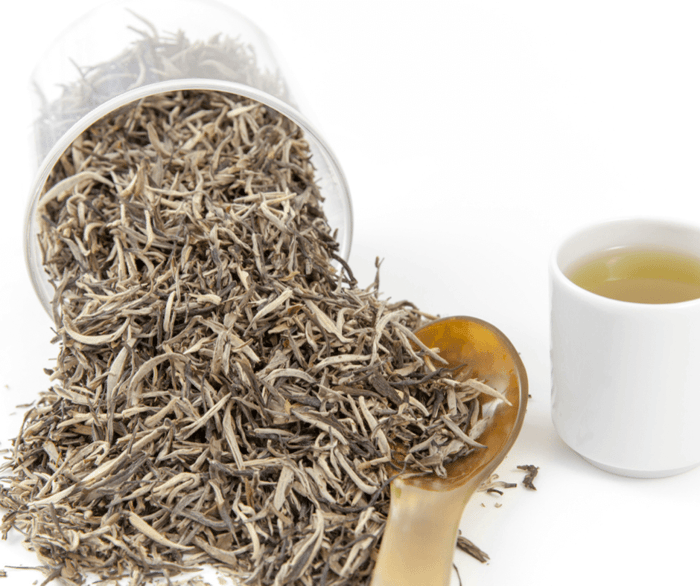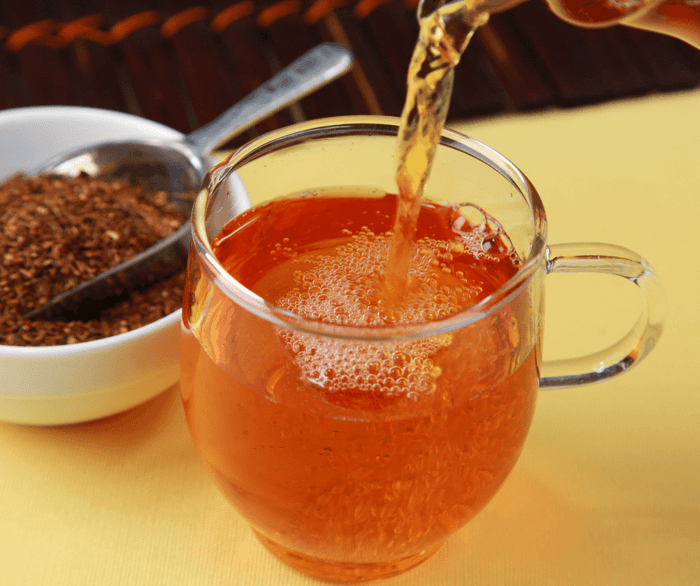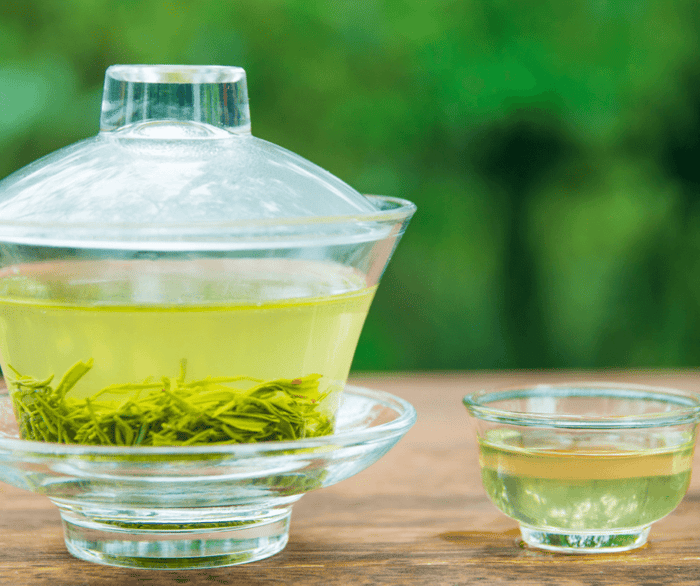We often hear about the health benefits of green teas and herbal teas. But another tea—one with many health benefits—has kept a low profile over the years.
It's unassuming. It's under-appreciated. It's white tea.
White tea is made from the leaves of the Camellia sinensis plant, the same plant that green and black teas come from. However, it contains less caffeine than green or black teas. This is because white tea leaves are harvested earlier than other teas, before the plant has had a chance to produce more caffeine.
In addition to having lower levels of caffeine than black teas or green teas, white tea has a more mild flavor due to the characteristics of its "immature" leaves—making it an appealing option for people who don't like to drink "strong" teas.
So what are some of the health benefits of this often-overlooked tea? Let's take a closer look.
White Tea is Good For Bone Health
White tea contains manganese, which supports bone health—and helps to prevent the risk of osteoporosis with age.
White Tea May Support Blood Sugar Management
While not specific to white tea, this study (which also looked at cocoa and red wine) states that teas made from the Camillia Sinensis plant (including white, green, and black teas) are associated with "protective effects" in people with diabetes.
White Tea May Help Reduce Cancer Risk
While far more research has been done on green tea in this area, the antioxidants contained in white tea may also help to protect cells from damage and reduce the risk of cancer. According to this study: "Recent investigations have associated white teas with anti-carcinogenic, immune-boosting, and antioxidative properties that may impact human health in a manner comparable to green teas."
Further: "the polyphenolic content of green teas was found to be similar to certain white tea varieties, which makes the latter tea type a potential substitute for people interested in consuming polyphenols for health reasons."
White Tea May Fight Inflammation and Aid in Workout Recovery
While more research is needed on the catechins in white tea specifically, there is promising research with other foods that contain catechins that connect them to the suppression of muscle inflammation and faster recovery following exercise.
From the linked study: "results suggest that long-term intake of catechins, perhaps through their antioxidant properties, attenuates downhill running-induced muscle damage by suppressing muscle oxidative stress and inflammation, hastening the recovery of physical performance in mice."
White Tea is Beneficial for Cognitive Health
Research has shown white teas to have comparable (or even slightly more) phytochemical catechins on average than green teas—even though these are the same antioxidants that green tea is famously associated with.
Phytochemical catechins have been linked with potentially protecting against the development of neurodegenerative diseases.
Conclusion
So there you have it—a few of the lesser-known health benefits of white tea. This humble tea has a lot to offer in terms of health benefits—from supporting blood sugar control and bone health, to reducing the risks of osteoporosis, cancers, and neurodegenerative diseases.
So next time you're stocking up on tea, don't overlook this healthy option! In fact, why not pick some up right now? Shop White Teas
Want to know how to keep your tea fresher longer? Read Here
Frequently Asked Questions:
Q: What is white tea? A: White tea is a type of tea made from the leaves of the Camellia sinensis plant. It is the same plant that is used to make green and black teas. White tea is harvested earlier than other teas, before the plant has a chance to produce more caffeine. As a result, it contains lower levels of caffeine than black and green teas.
Q: What are the health benefits of white tea? A: White tea has several health benefits, including supporting bone health and helping to prevent the risk of osteoporosis. It may also support blood sugar management and reduce the risk of cancer. White tea is beneficial for cognitive health and may also fight inflammation and aid in workout recovery.
Q: How does white tea compare to other teas? A: White tea has a more mild flavor compared to black and green teas. It also contains lower levels of caffeine than these teas. However, white tea contains comparable or even slightly more phytochemical catechins than green tea, which have been linked to neurodegenerative disease prevention.
Q: How can I incorporate white tea into my diet? A: White tea can be brewed and enjoyed as a hot or cold beverage. It can also be added to smoothies or used in recipes that call for tea as an ingredient. It is recommended to consume white tea in moderation, as excessive intake of any type of tea may have negative health effects.
Want More Coffee Content?
- Daily Coffee Grind - Click Here
- Coffee Reviews - Click Here
- Coffee Brewing Guides - Click Here
- Coffee Brewer Reviews - Click Here
- All Things Tea - Click Here









